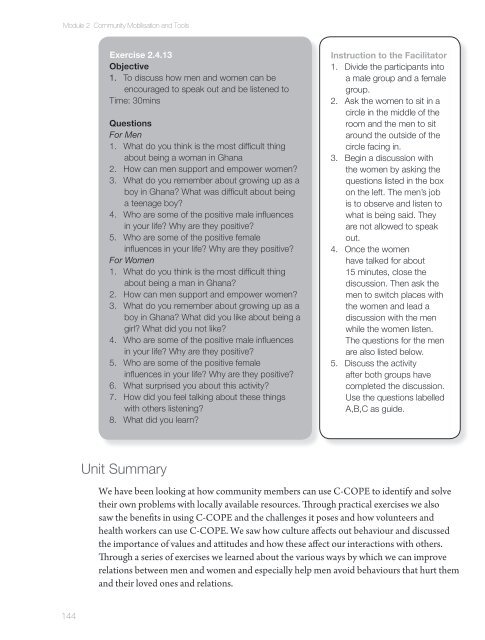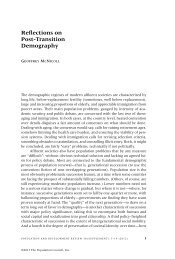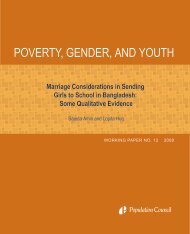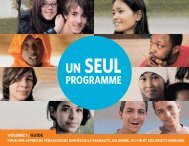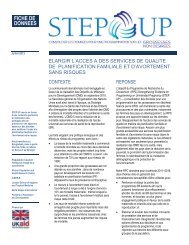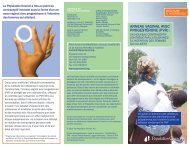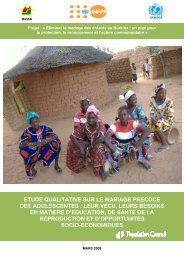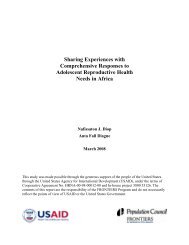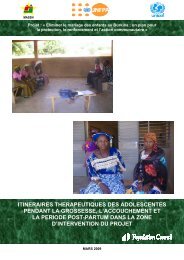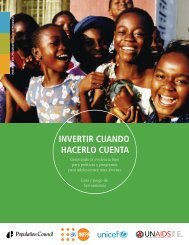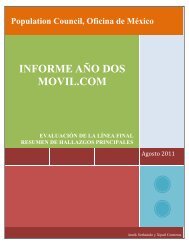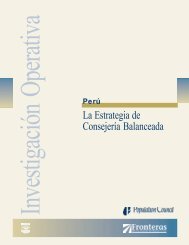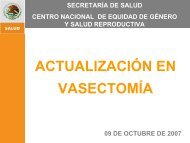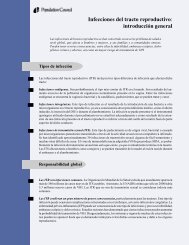Community Health Volunteer's Training Manual - Population Council
Community Health Volunteer's Training Manual - Population Council
Community Health Volunteer's Training Manual - Population Council
You also want an ePaper? Increase the reach of your titles
YUMPU automatically turns print PDFs into web optimized ePapers that Google loves.
Module 2 <strong>Community</strong> Mobilisation and Tools<br />
144<br />
Exercise 2.4.13<br />
Objective<br />
1. To discuss how men and women can be<br />
encouraged to speak out and be listened to<br />
Time: 30mins<br />
Questions<br />
For Men<br />
1. What do you think is the most difficult thing<br />
about being a woman in Ghana<br />
2. How can men support and empower women?<br />
3. What do you remember about growing up as a<br />
boy in Ghana? What was difficult about being<br />
a teenage boy?<br />
4. Who are some of the positive male influences<br />
in your life? Why are they positive?<br />
5. Who are some of the positive female<br />
influences in your life? Why are they positive?<br />
For Women<br />
1. What do you think is the most difficult thing<br />
about being a man in Ghana?<br />
2. How can men support and empower women?<br />
3. What do you remember about growing up as a<br />
boy in Ghana? What did you like about being a<br />
girl? What did you not like?<br />
4. Who are some of the positive male influences<br />
in your life? Why are they positive?<br />
5. Who are some of the positive female<br />
influences in your life? Why are they positive?<br />
6. What surprised you about this activity?<br />
7. How did you feel talking about these things<br />
with others listening?<br />
8. What did you learn?<br />
Unit Summary<br />
Instruction to the Facilitator<br />
1. Divide the participants into<br />
a male group and a female<br />
group.<br />
2. Ask the women to sit in a<br />
circle in the middle of the<br />
room and the men to sit<br />
around the outside of the<br />
circle facing in.<br />
3. Begin a discussion with<br />
the women by asking the<br />
questions listed in the box<br />
on the left. The men’s job<br />
is to observe and listen to<br />
what is being said. They<br />
are not allowed to speak<br />
out.<br />
4. Once the women<br />
have talked for about<br />
15 minutes, close the<br />
discussion. Then ask the<br />
men to switch places with<br />
the women and lead a<br />
discussion with the men<br />
while the women listen.<br />
The questions for the men<br />
are also listed below.<br />
5. Discuss the activity<br />
after both groups have<br />
completed the discussion.<br />
Use the questions labelled<br />
A,B,C as guide.<br />
We have been looking at how community members can use C-COPE to identify and solve<br />
their own problems with locally available resources. Through practical exercises we also<br />
saw the benefits in using C-COPE and the challenges it poses and how volunteers and<br />
health workers can use C-COPE. We saw how culture affects out behaviour and discussed<br />
the importance of values and attitudes and how these affect our interactions with others.<br />
Through a series of exercises we learned about the various ways by which we can improve<br />
relations between men and women and especially help men avoid behaviours that hurt them<br />
and their loved ones and relations.


